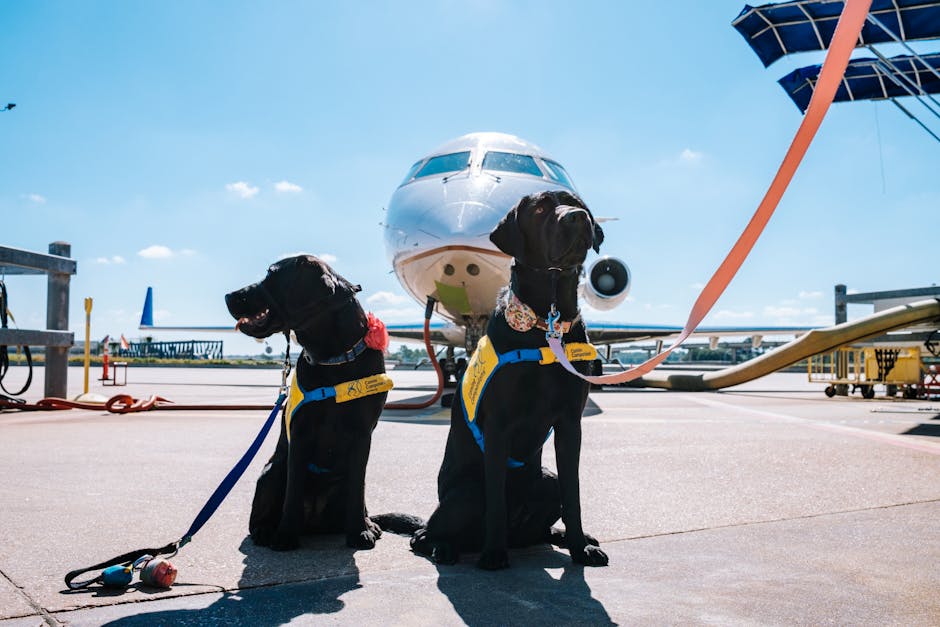When it comes to accommodating service dogs in residential communities, there are crucial regulations and considerations that property owners and tenants need to be aware of. Understanding the laws surrounding service animals can help ensure a harmonious living environment for all. Let’s delve into the key points every property owner and tenant should know to navigate this aspect of property management smoothly.
Understanding Service Dog Laws in Residential Communities
Service dog laws in residential communities are governed by the Fair Housing Act (FHA) and the Americans with Disabilities Act (ADA). These laws protect the rights of individuals with disabilities to have service dogs as accommodations, even in properties with no-pet policies.
The FHA requires landlords to make reasonable accommodations for tenants with disabilities, including allowing service animals. Property owners cannot discriminate against tenants with disabilities or charge additional pet fees for service dogs.
On the other hand, the ADA permits individuals with service dogs to access public places and accommodations. This law ensures that individuals with disabilities can benefit from the assistance of their service animals in various settings.
By understanding these laws, property owners and tenants can navigate the requirements and obligations associated with accommodating service dogs in residential communities effectively.
Key Rights and Responsibilities of Property Owners
Property owners have the responsibility to understand and comply with the laws regarding service dogs in residential communities. They must make reasonable accommodations for tenants with disabilities who require the assistance of service animals.
It is crucial for property owners to communicate openly with tenants regarding their needs for service dogs. Establishing clear guidelines and procedures can help prevent misunderstandings and conflicts related to the presence of service animals on the property.
At the same time, property owners have the right to request documentation from tenants to verify the need for a service dog. This documentation may include a letter from a healthcare provider confirming the individual’s disability and the necessity of a service animal.
By upholding the rights and responsibilities outlined in the relevant laws, property owners can create a supportive and inclusive environment for all tenants, including those with service dogs.
Ensuring Fair Accommodations for Tenants with Service Dogs
Tenants with service dogs rely on their animals for assistance with daily tasks and navigating the world. It is essential for property owners to provide fair and reasonable accommodations to ensure that these individuals can enjoy their homes comfortably.
Communication is key in fostering a positive relationship between tenants with service dogs and property owners. Tenants should feel comfortable discussing their needs and concerns regarding their service animals, while property owners should strive to address these issues respectfully and promptly.
Property owners can enhance the living experience for tenants with service dogs by maintaining a welcoming and inclusive attitude. Respecting the rights of individuals with disabilities and their service animals is not only legally required but also contributes to a compassionate and supportive community.
Navigating Legal Challenges in Pet-Free Residences
In pet-free residential communities, property owners may face challenges when tenants request accommodations for service dogs. It is important to approach these situations with an understanding of the laws governing service animals and the rights of individuals with disabilities.
Property owners can work with tenants to find reasonable solutions that comply with the law while maintaining the integrity of pet-free policies. Clear communication, documentation, and a willingness to collaborate are essential in resolving legal challenges related to service animals in such residences.
By proactively addressing legal issues and seeking guidance from legal professionals when necessary, property owners can navigate the complexities of accommodating service dogs in pet-free environments while upholding the rights of all residents.
Ultimately, by fostering a culture of understanding, empathy, and compliance with relevant laws, property owners and tenants can create a positive and inclusive community where individuals with disabilities and their service dogs are respected and supported.



